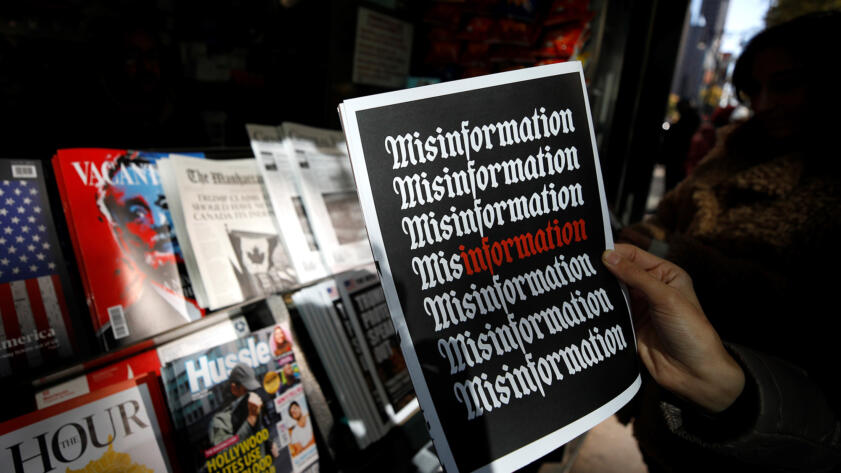This call for pitches is open and ongoing for all of 2024.
The Markup is seeking pitches for stories on how misinformation impacts immigrant communities, especially non-native English speakers, in the United States, as a part of our “Languages of Misinformation” series.
We want pitches from people who are:
- Already connected to an immigrant community experiencing misinformation. You may be connected because you want to cover your own community, or because you’ve built relationships with the community in other ways. We encourage pitches from reporters who want to cover their own communities’ challenges with misinformation.
- Able to communicate with that community in their native language. Your language skills need to be proficient enough that you can communicate in whatever format your sources normally use. For example, in addition to being able to interview sources verbally, you’ll probably need writing skills to text with sources using their apps of choice. However, your written proficiency doesn’t need to extend to being able to write articles in another language. (If you are, that’s a bonus—but we can also help with article translation.)
- Excited to create resources for communities, in addition to reporting out their stories. For example, as a part of Languages of Misinformation, our reporter conducted an in-person misinformation workshop in Vietnamese and helped community members download Google Translate. We want to work with people who would be excited to create those resources and who will pitch them to us as follow-up projects.
- Journalists, or people who have experience writing for news outlets. We want to see that you’ve reported stories and know how to write them in a journalistic style (see what to include below).
Immigrant communities we’d like to cover
We’re interested in pitches about how misinformation is impacting any immigrant community in the United States.
We’re especially interested in communities with many non-native English speakers, communities who are dealing with that language divide between generations and within families, and immigrant communities getting most of their news from social media platforms and nonmainstream media outlets. We’re also interested in how misinformation is affecting these communities during an election year.
We are not looking for additional pitches on the Vietnamese immigrant community, and we aren’t interested in focusing exclusively on East and Southeast Asian immigrant communities. Instead, we’re looking to broaden our coverage to include a diverse range of people and how misinformation is impacting them.
What to include in your pitch
Pitches can be as short as 150–250 words but should include:
1. Community info
- The community your story would cover (e.g., Nigerian communities in Texas, Mexican communities in Los Angeles, Caribbean communities in Florida)
- The native language of the community and your proficiency in that language
- Your existing relationship/experience with this community
2. Story info
- A potential headline
- Your story idea. Only 1–2 paragraphs, please!
- If it’s not obvious, how this is a misinformation and tech story
- What other stories have already been published about this? (If there has been similar coverage, what’s unique about your idea?)
- A rough reporting plan (this could be a bulleted list of sources you plan to contact or have already contacted and how you envision the structure of the story)
3. Info about you
- Your estimate for how long it’ll take to do a first draft (e.g., a week, three weeks, a month)
- Why you are the right person to tell this story. Please include a line or two about your writing background. A published clip or two would be great, too.
We welcome pitches for data stories, interactive graphics, and other creative ideas (e.g., creative community-based TikTok campaigns). If this applies to you, make sure to address this explicitly in your pitch.
Example pitch
The first piece we published in the Languages of Misinformation series is about a Vietnamese YouTuber. Here’s what a 200-word pitch for that story could look like:
Hi there! I want to pitch a story about the Vietnamese community in Oakland, California. It’s a community I’m personally connected to through a family member, and I regularly speak with and text my family in Vietnamese.
A potential headline for the story is something like “This community only goes to one YouTuber for the news, and she mainly translates Newsmax.” This community primarily relies on YouTube to get their news about Oakland, California, or just the US overall, because there aren’t many journalism orgs that publish news in Vietnamese, and most members of this community don’t speak English. However, the most popular YouTuber, Sonia Ohlala, translates only far-right outlets like Newsmax. I want to visit the community, interview folks, and look at some of their YouTube view histories to see what data I can get. I’m already in contact with two members of the community. I plan to contact Sonia Ohlala.
My guess is that reporting will take around two weeks, and if I’m able to get YouTube view history data, I’ll need some more extra time to go through that — maybe another 2 weeks? Shorter if I have help. Here’s a link to my clips: LINK HERE.
Where to send your pitch
Email pitches to misinfo-pitches@themarkup.org. Please put your pitch in the body of the email and not as a link or attachment.
How we’ll work together (including pay!)
We’ll do our best to respond to everyone who submits a serious pitch, even if it’s to say that we’re passing.
If we accept your pitch, you and a Markup editor will talk through and agree on scope, deadlines, kill fees (if it makes sense), and an estimated word count that feels right for the story. After that, you’ll get a contract from us with all of that written out.
The Markup pays $1/word based on estimated word count. Here’s what that means in practice: If we agree a story should be an estimated 1,000 words, we’ll commission you to do the story for $1,000, regardless of whether the final published work is 700 words or 1,300 words. This allows us to estimate a fair price together upfront, and then no one has to fuss with the exact word count after the fact because of pay.
Freelance stories go through our regular workflow, which includes as many editing rounds as makes sense for your story. More straightforward pieces may only need one edit; some stories will need more attention.
When a story is finalized (complete and ready to publish), you’ll invoice us, and we’ll process your payment soon after. Our contract guarantees payment within 30 days of receiving your invoice; in practice, payments typically get to folks after two weeks.




